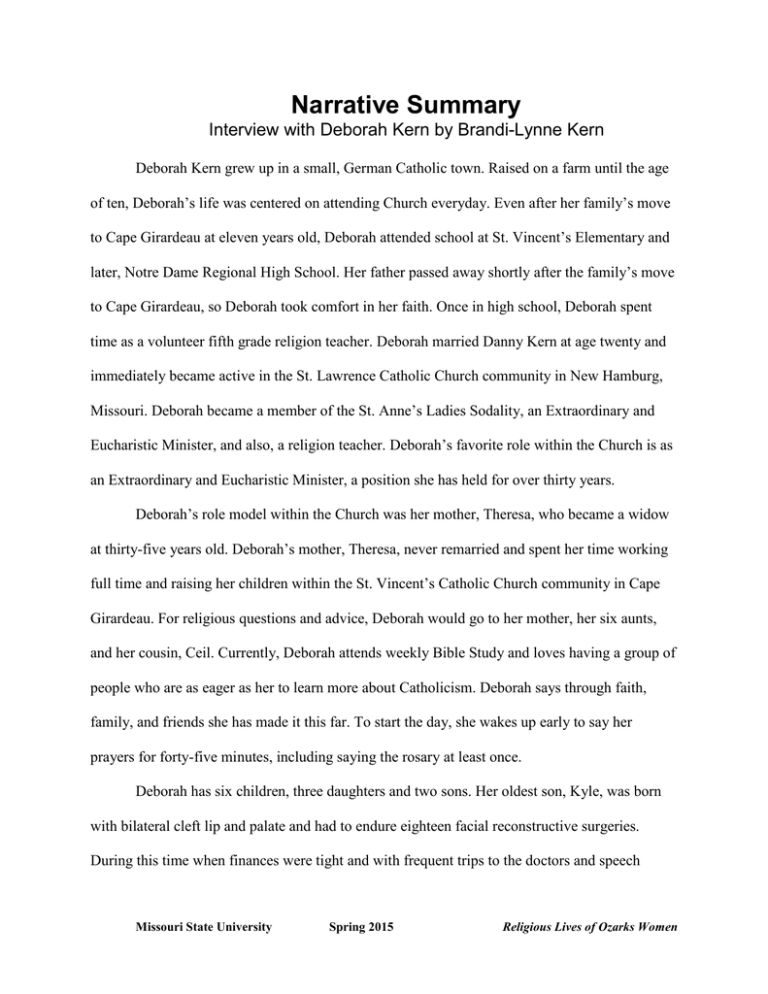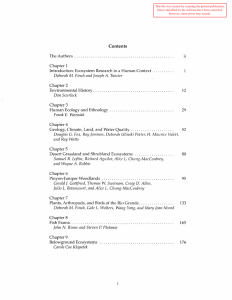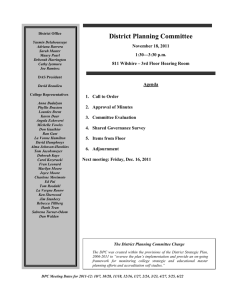Narrative Summary Interview with Deborah Kern by Brandi-Lynne Kern
advertisement

Narrative Summary Interview with Deborah Kern by Brandi-Lynne Kern Deborah Kern grew up in a small, German Catholic town. Raised on a farm until the age of ten, Deborah’s life was centered on attending Church everyday. Even after her family’s move to Cape Girardeau at eleven years old, Deborah attended school at St. Vincent’s Elementary and later, Notre Dame Regional High School. Her father passed away shortly after the family’s move to Cape Girardeau, so Deborah took comfort in her faith. Once in high school, Deborah spent time as a volunteer fifth grade religion teacher. Deborah married Danny Kern at age twenty and immediately became active in the St. Lawrence Catholic Church community in New Hamburg, Missouri. Deborah became a member of the St. Anne’s Ladies Sodality, an Extraordinary and Eucharistic Minister, and also, a religion teacher. Deborah’s favorite role within the Church is as an Extraordinary and Eucharistic Minister, a position she has held for over thirty years. Deborah’s role model within the Church was her mother, Theresa, who became a widow at thirty-five years old. Deborah’s mother, Theresa, never remarried and spent her time working full time and raising her children within the St. Vincent’s Catholic Church community in Cape Girardeau. For religious questions and advice, Deborah would go to her mother, her six aunts, and her cousin, Ceil. Currently, Deborah attends weekly Bible Study and loves having a group of people who are as eager as her to learn more about Catholicism. Deborah says through faith, family, and friends she has made it this far. To start the day, she wakes up early to say her prayers for forty-five minutes, including saying the rosary at least once. Deborah has six children, three daughters and two sons. Her oldest son, Kyle, was born with bilateral cleft lip and palate and had to endure eighteen facial reconstructive surgeries. During this time when finances were tight and with frequent trips to the doctors and speech Missouri State University Spring 2015 Religious Lives of Ozarks Women 2 language pathologists in St. Louis, Deborah was able to depend on her other family members and religious community for help. She did admit to questioning her faith during her son’s numerous surgeries, but overcame these thoughts with the help of her son’s doctor, Dr. Eads. Dr. Eads always credited his talents with God, so this really helped Deborah see the power of God’s work through the talent and skill of Dr. Eads. After being diagnosed in 2013 with Stage II breast cancer, Deborah’s faith only continued to strengthen and grow. Upon hearing her cancer diagnosis, Deborah’s priest, Father Casteel administered last rights to her. This gave Deborah a great deal of comfort and a peace of mind because she knew that no matter what happened in the future, she was prepared for heaven if something were to go wrong. During her thirteen-month battle with breast cancer that included numerous surgeries, chemotherapy, and radiation treatments at the Siteman Center in Saint Louis, her faith never weakened; it only intensified. She began praying even more and spent her free time writing and sending cards of encouragement to other cancer patients and people going through difficult times to let them know someone was thinking about them. It was also around this time that Pope Francis was elected, and Deborah loves him and the new direction of the Catholic Church and even said that he is one of her two favorite popes; Pope John Paul II is also her favorite. She thinks that Pope Francis does a wonderful job reaching out to the poor, connecting with Catholic youth, and being a great religious figurehead for the world to see. Deborah does admit to wanting women to be granted higher religious status within the Church as priests, and also, for the male priests to have the right to marry and have a family. She does not see why nuns and other educated women cannot become priests. She thinks that these changes would help the priests because currently, many priests have multiple parishes and are often times traveling back and forth between parishes. Deborah does not see these changes Missouri State University Spring 2015 Religious Lives of Ozarks Women 3 happening in the near future, but remains optimistic and hopeful for a future, where women can hold these leadership positions, and priests can marry and have families. Missouri State University Spring 2015 Religious Lives of Ozarks Women


